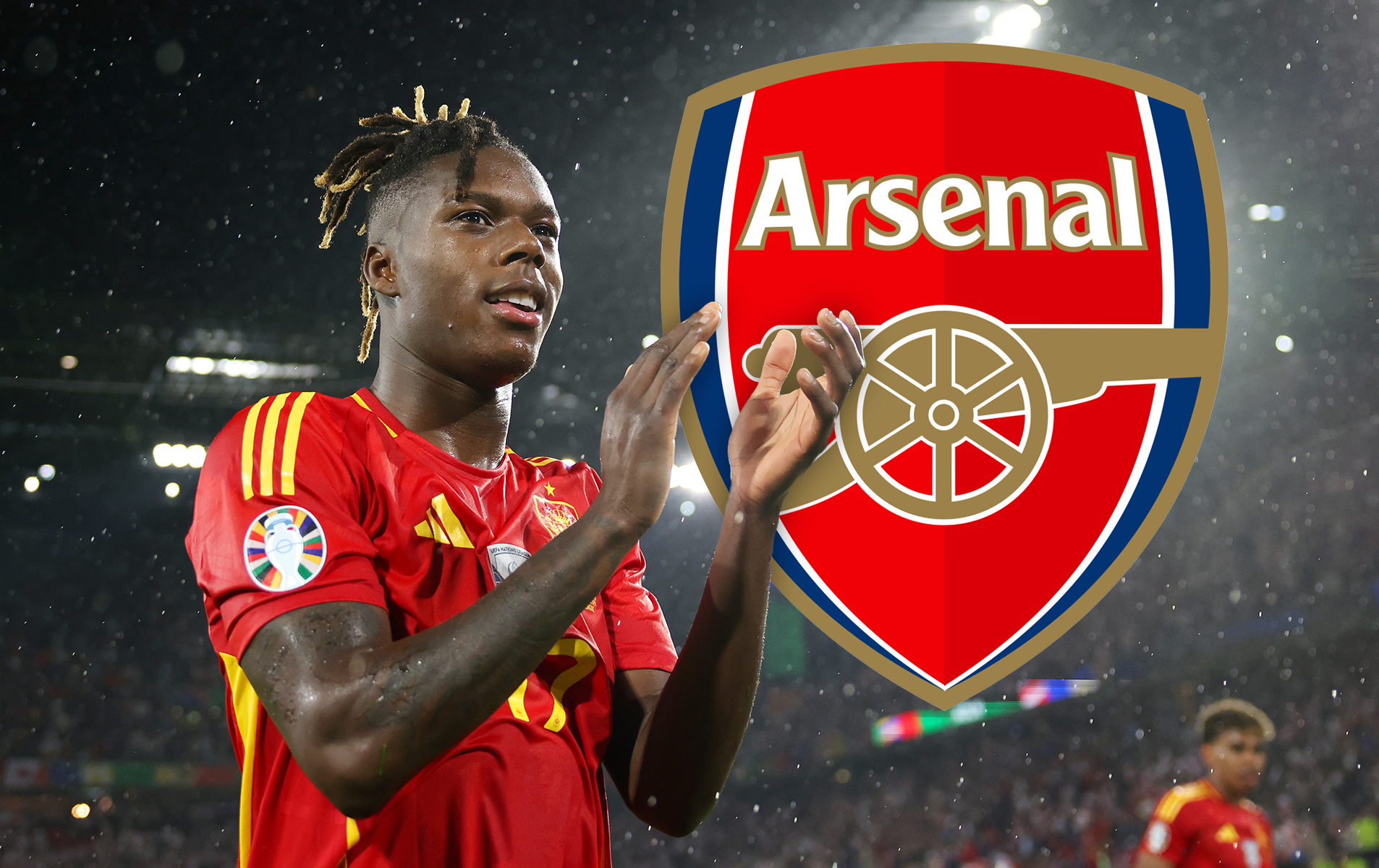How Di Maria defied the Bernabeu boo boys and became the jewel in Real's crown
Only at the start of this year, the Argentine was jeered by his own fans. Two weeks later, writes Jonathan Fadugba, he was on his way to becoming Real Madrid's most important player...
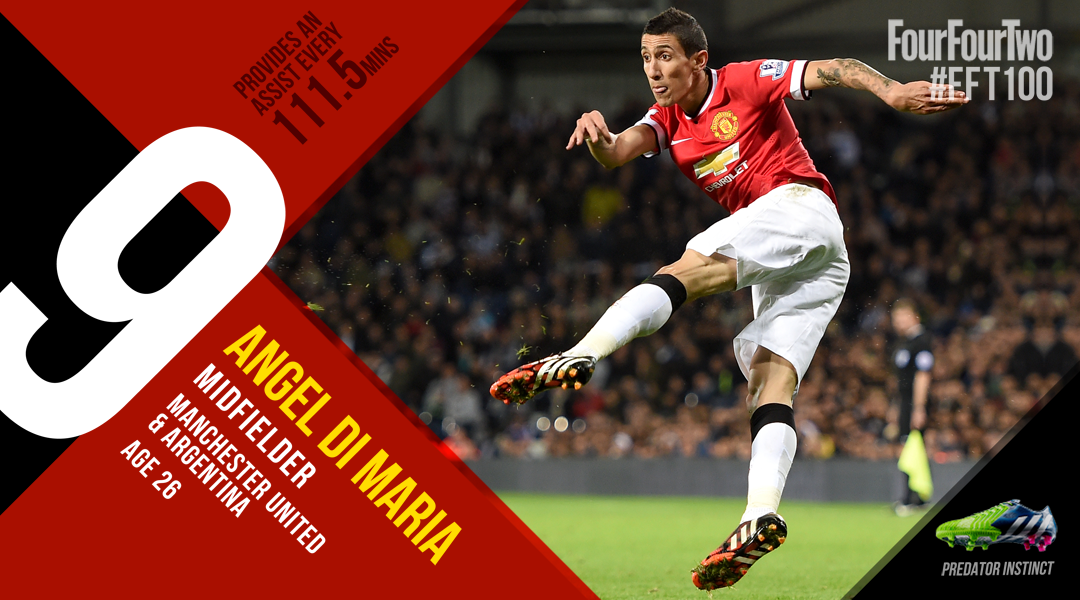
In hindsight, the turnaround was incredible. It was January 6, 2014, and with 64 minutes gone, Real Madrid were struggling to break down Celta Vigo. The game was in the balance at 0-0; Carlo Ancelotti decided to make a substitution. The board went up: Gareth Bale on, Angel Di Maria off. This was no big surprise – Di Maria was stuck in an indifferent run of form and had completed 90 minutes only once in Madrid’s previous 10 games. What happened next, however, was.
As the Argentine jogged off the pitch, large sections of the Bernabeu crowd rose to their feet. Di Maria was booed off. In response, he did what any self-respecting gangster rapper or Michael Jackson impersonator would do – he grabbed his crotch. Whether intended as a targeted, defiant gesture towards a disgruntled crowd or he just had an itch, the momentary ball tampering caused big controversy.
Real Madrid opened disciplinary proceedings. Di Maria denied it was pre-meditated and Ancelotti leapt to his defence, but in the aftermath the winger was left out of Madrid’s next game against Osasuna and roundly booed when his name was announced among the substitutes. Contract negotiations were stalling, and with the transfer window open and his popularity at a momentary low, was this point fin for ‘El Fideo’ in Madrid?
Defying the doubters
Not at all. Proving people wrong has been a consistent theme of Di Maria’s career. From his days as a junior at El Torito, when this scruffy son of coal factory owners would turn up to training with hands black from lugging bags of coal, to the Rosario Central days when his idol and team-mate Kily Gonzalez used to lambast him for making the wrong decisions, to how he disproved the doubters as a skinny waif of a teenager at Benfica and became so integral as to earn himself a €25m move to Real Madrid.
Di Maria scored goals in two of his next three games. Few players at Real Madrid manage to ride the storm of the Bernabeu boo boys and emerge a hero – in fact usually the booing is a sign that your time is up. Just ask Jose Mourinho. But within a fortnight Nutsgate was all forgotten. “With El Fideo’s return to prominence any intention to sell him in the January window has been aborted,” wrote Marca journalist Hugo Cerezo. “The situation has turned around in less than two weeks. The rehabilitation is complete.”
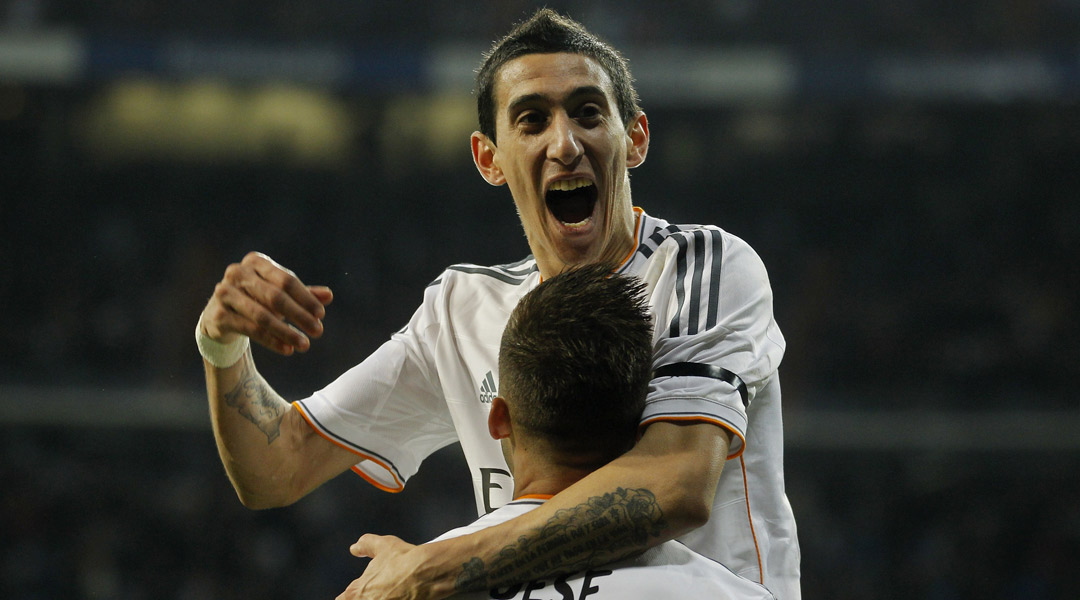
Di Maria would go on to make 52 appearances for Real Madrid in 2013/14. He scored 11 goals and provided 26 assists, either creating or scoring a goal for his team every 101 minutes. He helped his team win La Decima – the long-coveted 10th European Cup – scored the opening goal in the Copa del Rey final win against Barcelona and was named man of the match in the Champions League final.
Get FourFourTwo Newsletter
The best features, fun and footballing quizzes, straight to your inbox every week.
Overall he scored 36 goals and supplied 72 assists in 190 games for Real Madrid and, according to Opta, over the last four years before 2014/15 only Lionel Messi set up more goals in La Liga. By the season’s end, Di Maria enjoyed the unflinching respect and admiration of his team-mates, the fans unanimously loved him again and Ancelotti was desperate to renew his contract.
All of which begs an obvious question, really: why the hell did Real Madrid let him go?
Bye-bye Bernabeu
Apparently, all of this was not enough for the Bernabeu powers that be. The kid from La Perdriel brought silver and gold, but not enough glamour. James Rodriguez was the new beau in town. Di Maria became dispensible.
“Unfortunately, my football isn't to someone's taste,” wrote Di Maria in an open letter after completing his £59.7m to United, a pointed message for Madrid’s club president Florentino Perez, who never considered the man nicknamed ‘The Noodle’ among the club’s inner circle of marketable Galacticos. “Perez wasn’t there when I signed and he didn’t show up when I had to renew my contract, either,” the Argentine grumbled.
Di Maria brought the perfect balance to Real Madrid in the second half of last season, switching to a midfield role in Ancelotti’s 4-3-3 with consummate ease.
His energy, speed, creativity and tactical understanding provided a vital blend, helping Madrid win 28 out of 36 games from New Year up to the Champions League final win against Atletico Madrid. Though selling him to Manchester United earned Real Madrid a club record transfer fee, it still appeared to make no sense.
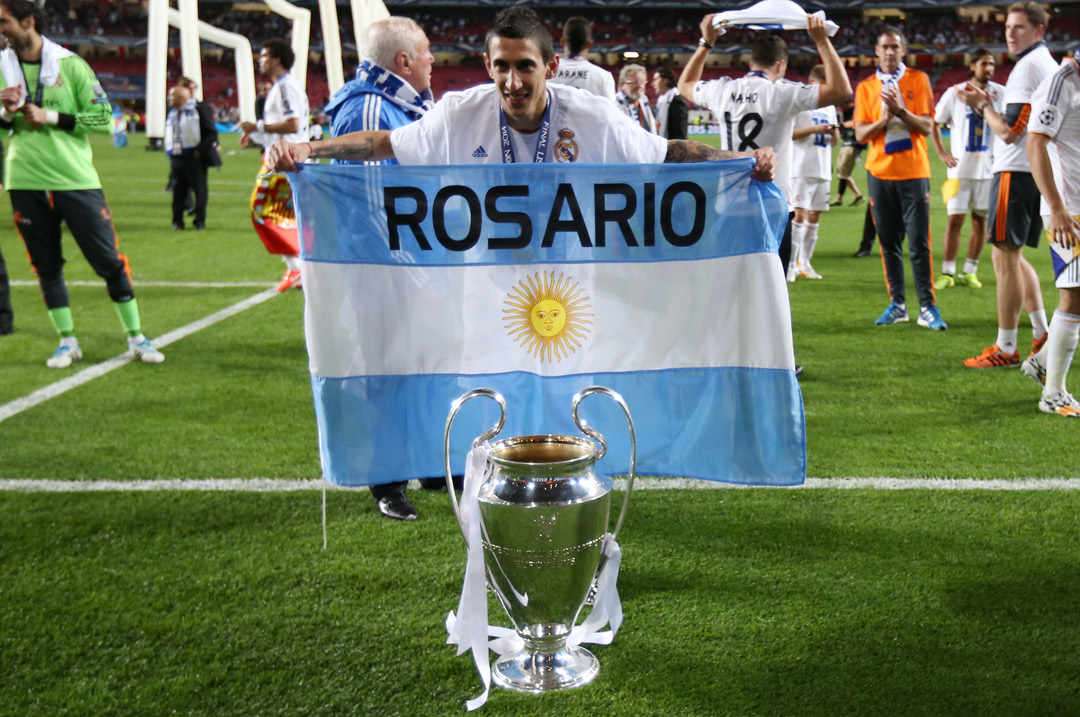
Madrid’s loss is Manchester’s gain. Truth be told, the No.7 shirt at Old Trafford has looked an uncomfortable fit on all successors since Cristiano Ronaldo wore it with such unbridled swagger from 2003-09. Michael Owen never quite cut the mustard, while Antonio Valencia seemed to carry it like a boulder around his neck before vacating it due to ‘superstition’. But the famous No.7 fits Di Maria like a tailored Ozwald Boateng.
Already, ‘Angelito’ has three goals and six assists in 10 appearances for Louis van Gaal’s newly-assembled squad, averaging a goal or assist ever 91 minutes. Where others take months, sometimes even a year or more to adapt to the hustle and bustle of life in the Premier League, Di Maria’s transition has been seamless.
In a United squad with an increasingly Spanish-speaking flavour, the 26-year-old is already a popular member of the dressing room – what more would you expect from a man whose generosity saw him rent a plane last summer to fly six of his childhood friends from Rosario to Rio de Janeiro for the World Cup final?
Angel of the North
Di Maria is exactly what United have been missing. The turn of pace, the speed in transitions, the ability to beat a man and spot a pass – all attributes the little Angel-turned-Red Devil possesses in abundance. While he’s made an encouraging start, with glimpses of magic – the extraordinary chip against Leicester, the assured quality of strike against Everton, that pass with the outside of the left foot to Robin van Persie against QPR – the sense is that there’s still more to come from the most expensive purchase in United’s history.
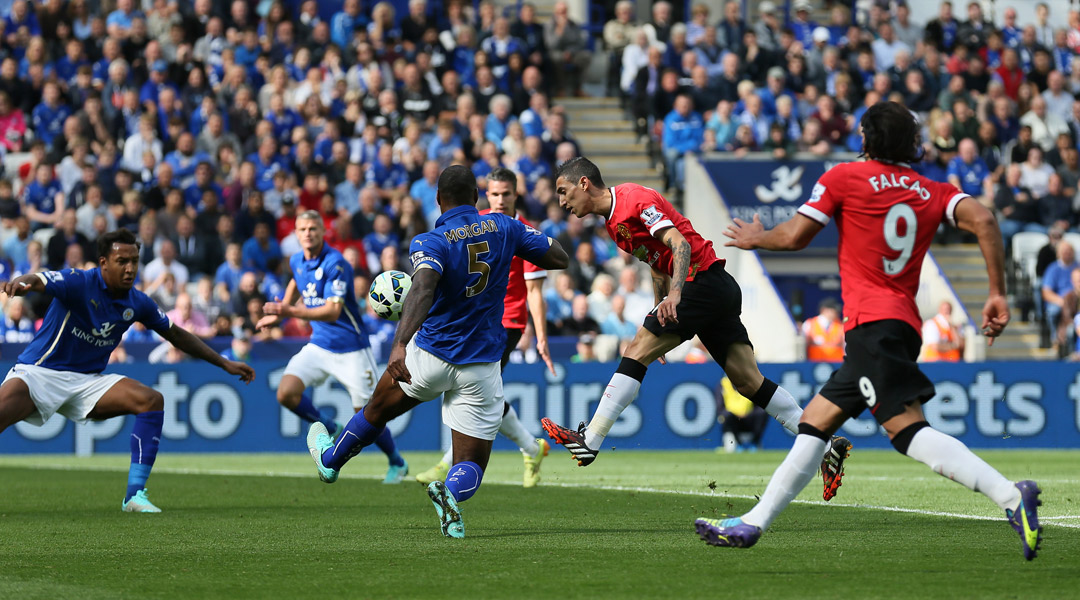
“It is my opinion that Di Maria is Madrid's best player for sure,” Atletico Madrid boss Diego Simeone commented days before the 26-year-old’s move to Old Trafford. “His ability to change games in the middle of the park helps everyone else to play well.”
Di Maria’s first transfer, from El Torito to Rosario Central at the age of six, was completed in exchange for 26 footballs. From 26 balls to €25m and then more than double that, Manchester’s Angel of the North continues to sky-rocket in value.
